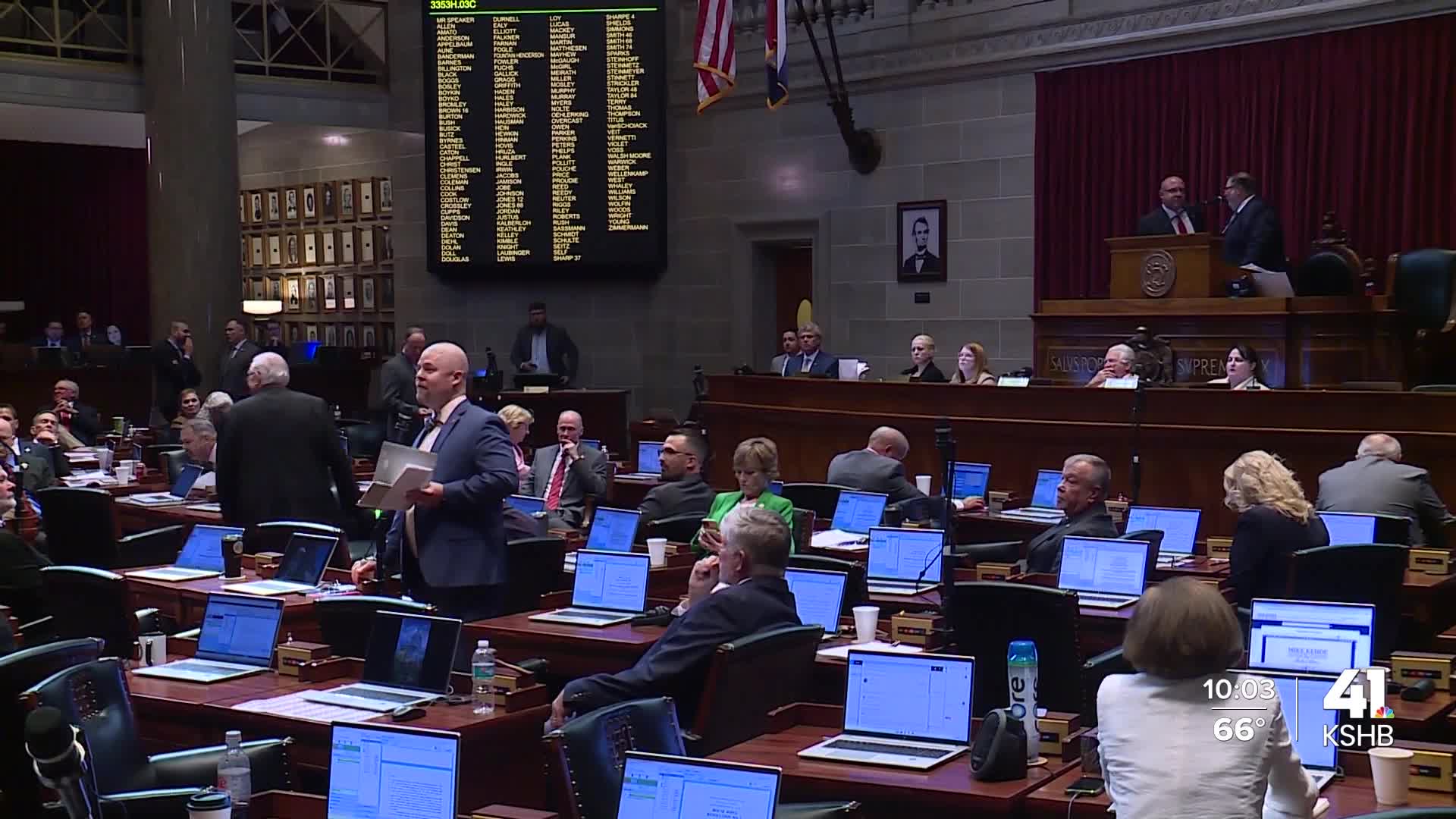KSHB 41 reporter Isabella Ledonne covers issues surrounding government accountability, solutions and consumer advocacy. Share your story with Isabella.
The Missouri House of Representatives perfected a bill to redistrict the state's U.S. Congressional boundaries on Monday night.
The proposal will go to a final vote Tuesday in the Missouri House of Representatives before going to the Missouri State Senate for more debate.
Missouri is in a unique position by proposing redistricting that's not directly tied to a census count, but it's not unheard of.
According to a gerrymandering report from Princeton University, several states have district lines that were redrawn for political advantage. Illinois, Kansas, Tennessee and Texas are among the states that received a grade of "F" for redrawing district boundaries for political advantage.

The report gave Missouri an "A" for political fairness based on the current district lines, but if the redistricting goes through, that grade could change.
South Kansas City is one of the communities that could be split down the middle with the new congressional district lines. Neighbors brought up their concerns to Kansas City's leaders at a town hall meeting on Monday night.

"What can we really do?" Denetra Pouncil, a neighborhood resident, said. "We're not able to get our voices heard through our [state] representatives."
Some at the meeting questioned how Missouri could legally redraw district lines that would give Republicans a political advantage at the federal level. Others were concerned about the fate of future federal dollars for local improvements.
"Now, we're going to lose funding for our areas," Pouncil said.
Matt Harris, a political expert and associate professor of political science at Park University, explained what redistricting could mean in Kansas City.

"There's a good probability you're going to have no democratic representation on this side of the state," Harris said.
What Missouri is attempting to do now has been done since the early 2000s in states like Texas, Colorado and Illinois. Harris explained it's given advantages to both parties.
"This type of partisan gerrymandering is not good for democracy," Harris said. "What democracy is is the voice of the people represented in the government."
If you look at Missouri's proposed map, District 5 would include parts of Kansas City and go out to the Lake of the Ozarks to potentially give Republicans an advantage.

Experts have said the lines don't make geographical sense, but we've also seen this come from Democratic-led governments. In Illinois, the lines were redrawn in a way that puts cities that are two hours away in the same district, cutting out much of the area in between.

"There are some legitimate questions about whether this sort of mid-decade, purely for political gain redistricting, is constitutional," Harris said.
Those questions have already prompted one lawsuit from the NAACP, challenging Missouri's special session. The redistricting has yet to formally pass the House, though it was perfected on Monday night.
It must get through the Senate and then signed by Missouri Governor Mike Kehoe.
After that, it will most likely face a legal battle.
"It will probably be the Missouri State Supreme Court that is going to have to answer some of these questions," Harris said.
Texas has already signed its new district lines into law and California is putting its redistricting proposal on the upcoming November ballot. More coverage on Missouri's redistricting can be found here.



